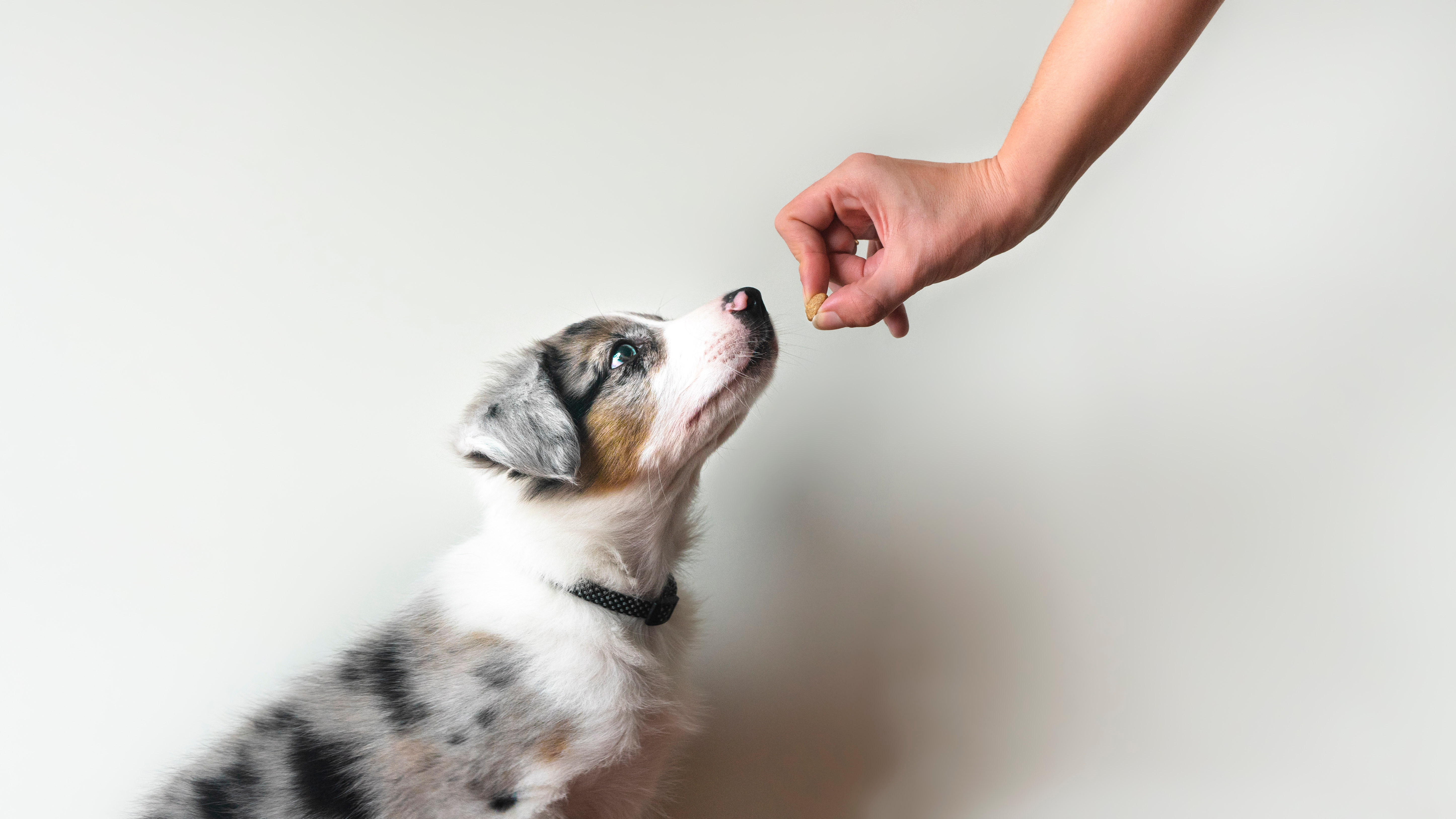
Man’s best friend is as treat-obsessed as we all thought.
Nine out of 10 dogs chose food over toys in the first study of its kind, conducted by University of Florida psychologists. The study allowed dogs to pick their favorite food and favorite toy, then put them head to head in an experiment simulating a training experience. Most dogs responded more strongly to the food reward.
“I was surprised, but nobody’s looked at how dogs will work for toys versus food before,” said Nicole Dorey, a lecturer in the UF Department of Psychology who performed the study with her students and other collaborators.
The researchers recruited 10 pet dogs from the local area. Each dog was shown six food items – including treats, cheese, carrots and hot dogs -- and six toys, such as a tennis ball, a squeak toy, a plastic bone or a stuffed animal. Each dog then had a chance to choose their favorite food and favorite toy.
"... nobody’s looked at how dogs will work for toys versus food before."
In another set of experiments, the dogs had to work harder and harder for their reward. Most dogs gave up earlier when offered a preferred toy reward than when given they favorite treat.
Other studies have shown that dogs might prefer human attention to food.
“I think the next study should look at all three – attention, food, and toys – and what dogs really like best when training,” Dorey said.
Some dog trainers suggest using toys instead of food in training to avoid excess calories and to make the experience more fun for the dog. If dog owners want to follow this advice, the key is to not have toys competing with food, say the researchers.
“You can definitely train your dog with toys if you start really early,” Dorey said. “This is what’s done with search and rescue dogs, they start really early with toys as a reinforcer.”
The study was led by undergraduate UF students Xenabeth Lazaro and John Winter, who have since graduated. Collaborators from the Florida Institute of Technology and Johns Hopkins University also contributed. The authors recently published their findings in the journal Animals.
This story was originally published by the University of Florida on October 17, 2023.